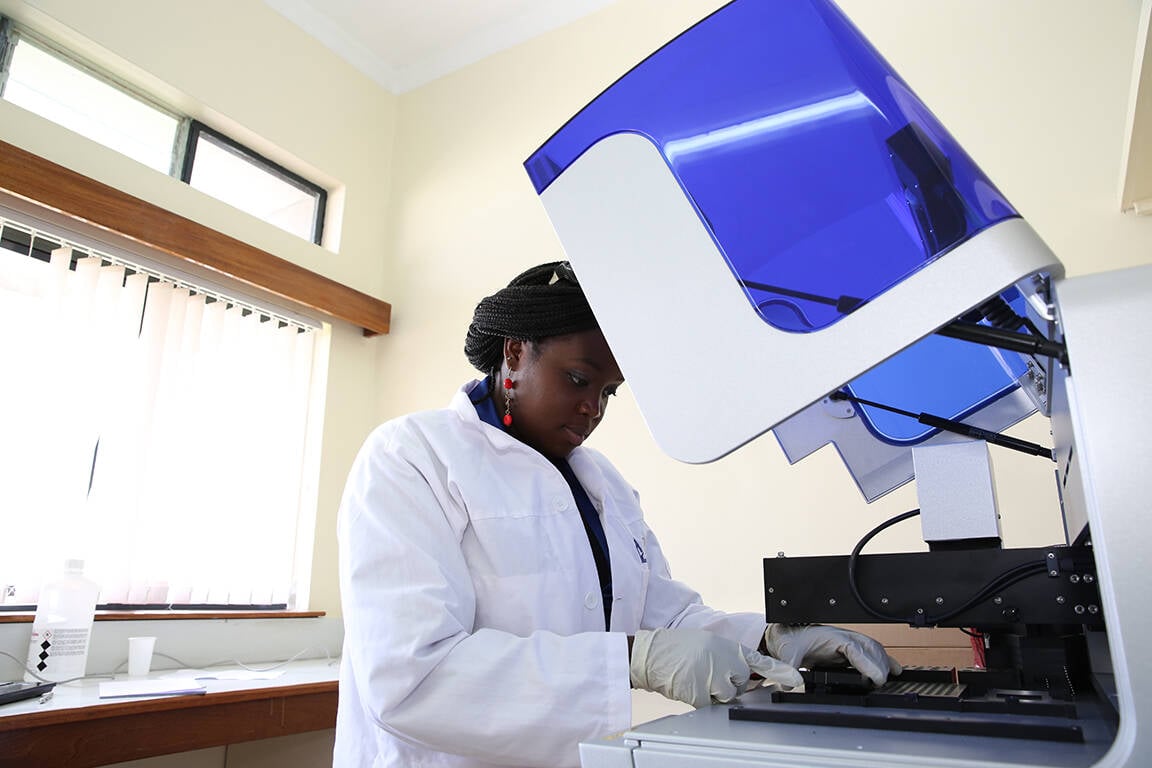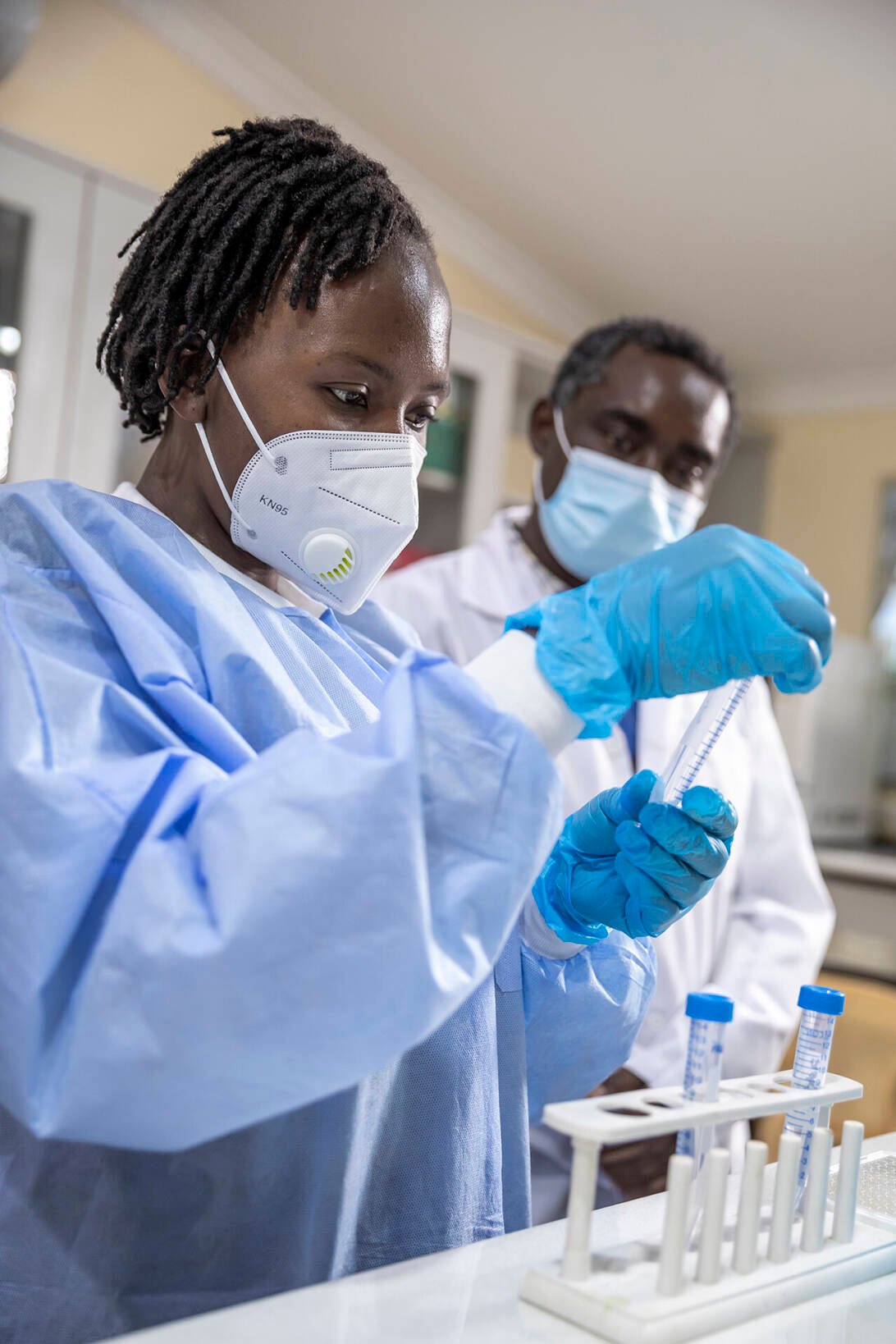
scroll down
A Career Development Fellowship co-funded by EDCTP and Novartis has enabled Dr Alex Kayongo to explore the role of the lung microbiome in HIV/AIDS and TB.

In his fellowship, Dr Kayongo studied a group of people from rural Uganda living with HIV, some of whom had developed COPD. He discovered that the lung microbiome was disturbed in individuals with COPD symptoms, even though their HIV was well controlled.
Furthermore, changes to the lung microbiome were associated with the presence of particular inflammatory cells in the lung. He was able to identify microbial species that were associated with damaging lung inflammation, such as Streptococcus spp, and particular classes of immune cell, particularly Th17-like cells, that could be key contributors to lung-damaging inflammatory responses.
The findings point to the importance of infection in triggering lung damage in people living with HIV, which has generally been considered a consequence of smoking. Furthermore, they suggest a possible way to prevent lung disease developing.
Dr Kayongo is continuing his work on the lung microbiome, having secured funding from the US National Institutes of Health (NIH). He has investigated the lung microbiome of TB patients and people with latent mycobacterial infections, identifying a microbiomic signature that discriminates between those with active and latent infections. This could provide the basis of a new test to distinguish such groups, which is difficult to achieve with existing tools.
The microbial communities that live in different parts of the human body can have a major influence on health and disease. Since the make-up of these communities show geographical variation, studies in Africa are needed to determine the specific contributions of the microbiome to health and disease in the region.
In 2021, Dr Alex Kayongo, based at Makerere University in Uganda, began a Career Development Fellowship focused on the potential role of the microbiome in lung disease in people living with HIV. Even when viral replication is effectively suppressed, such people are at increased risk of lung conditions such as chronic obstructive pulmonary disease (COPD). This vulnerability is becoming increasingly important as antiretroviral therapy can ensure people living with HIV survive into late adulthood and beyond.
Dissecting the microbiome’s role in lung disease